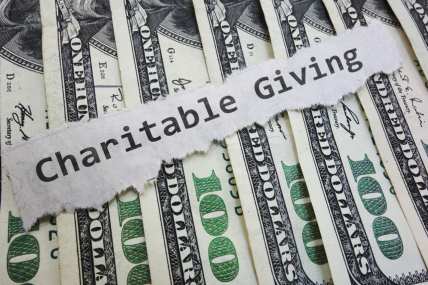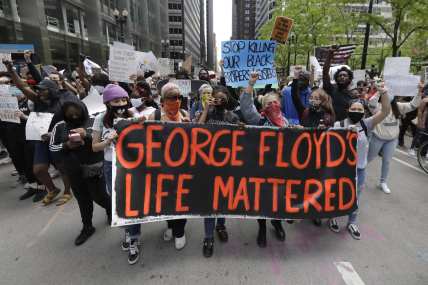Editor’s note: The following article is an op-ed, and the views expressed are the author’s own. Read more opinions on theGrio.
Love has often been overlooked as a driving force for change. However, for Black communities worldwide, love has always been more than a sentiment; it is an intentional and powerful force that fuels transformative action.
Despite both growing up in the ’90s in Black households, our individual upbringings couldn’t be more different. One of us grew up in Oak Cliff, Texas, a predominantly Black, urban neighborhood, south of Dallas, and the other grew up in the predominantly white, rural community of Airdrie, Alberta, in Canada with respite found in select summers spent in the warmth of Hopetown, Guyana.

While our contexts were different, the universal nature of love in our lives was the same and had a profound impact on both of us, forming the foundation of our work in social justice and equitable philanthropy. That’s why we cannot ignore the wholesale attack on Black communities. In the United States, we are faced with the undoing of 45 years of legal protection with the recent Supreme Court decision rejecting affirmative action at colleges and universities, ending the consideration of race to increase diversity on campuses across the United States. Book bans that eliminate our storytelling, literature and theories addressing race, racism, or featuring characters of color are increasing — by a shocking 28% during the first half of the 2022-23 school year. Not to mention the complete fabrication of history that suggests enslaved people “developed skills” that could be used for “personal benefit” in Florida’s new social studies curriculum. Globally, we are seeing asylum seekers left homeless or facing death at sea. Across each of the United Nations’ Sustainable Development Goals (SDGs), Black people are disproportionately negatively impacted across every single measure.
When looking at these devastating realities, we must ask a difficult question: Is love all we really need? Reflecting on our childhood upbringings and examining Black communities across the diaspora, yes, we see love. We also see collective action.
Love alone cannot stop the bullets of injustice from attacking us, but we believe that love combined with the chords of collective action can. In her book “All About Love: New Visions,” the incredible teacher bell hooks urges us to use love as a verb, an intention and a choice, which is not new in Black philanthropy. It begins with self-love and extends to a deep recognition of each other’s humanity in our families, neighbors, and communities. Love in action compels us to support and lift each other up, dispelling myths and seeing each other as whole and free individuals.
The roots of Black love in action are deep. According to a 2018 report, Black communities donate a more significant portion of their wealth — individually and collectively compared to other racial and ethnic groups. This holds true globally, with Kenya recently cited as the most philanthropic country by Giving Tuesday.
Black philanthropy is collective and it is action-oriented from the Community Investment Network bringing together Black philanthropists through giving circles with its program “Love in Action” to the hundreds of Black-led organizations that brought forward the community-led collaborative Foundation for Black Communities. What is gaining more traction is a call for Black communities to embrace care, healing and rest to break the bonds of intergenerational trauma and injustice. We are hugely supportive of self-care and have seen the incredible benefits of pausing, reflecting and healing in our own lives and of those we love. As we embark on this journey of love in action, we must start where we are, realizing that every intentional action is a step toward collective liberation.

As we analyze the role of love as a verb in the context of the philanthropic sector, we must confront global histories of colonization, imperialism and slavery and its impact on the Black community. Lovelessness, caused by generations of systemic racism, is a wound that philanthropy must actively heal. Supporting communities of color should be a commitment to their holistic well-being and liberation. Furthermore, love in action requires us to address the injustice in funding and grant allocation. For example, Black-led organizations are 24% smaller than their white-led counterparts, and unrestricted funding is even less — 76% smaller than their white-led counterparts, according to a Bridgespan Group report.
Philanthropy, as a movement of the people, must acknowledge the data that reveals inequities and then take purposeful steps to correct these imbalances. Institutional funders can apply the Global Black Funding Principles to their work and identify opportunities to better support Black-led and Black-serving organizations. All individuals have the power to be part of this movement, irrespective of their background or circumstances. We must encourage each other to love through action, to show up, contribute, and use whatever power we possess to make a difference.
We now have an opportunity to redefine the role of love in philanthropy and society at large. Love as a verb compels us to move beyond sentiment and into intentional action, addressing the wounds of the past and working towards collective liberation. By acknowledging and nurturing Black love and action, we empower communities, transform philanthropy, and pave the way for a more just and inclusive future. We invite others to join us in this collective journey, for together, we can create lasting change and a world where love is the driving force behind every action.

Rebecca Darwent is the senior adviser of collaboratives at Philanthropy Together.

Tyeshia Wilson is the director of engagement at Philanthropy Together.
TheGrio is FREE on your TV via Apple TV, Amazon Fire, Roku and Android TV. Also, please download theGrio mobile apps today!
Credit:Source link




